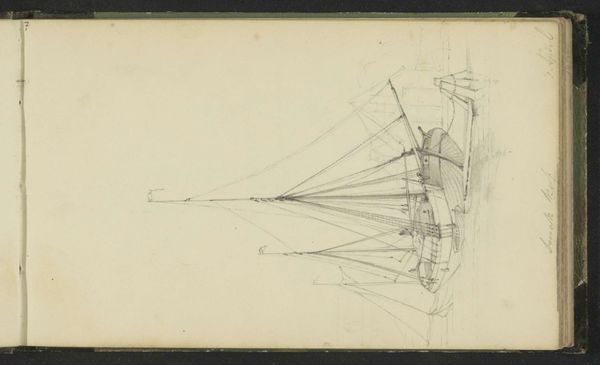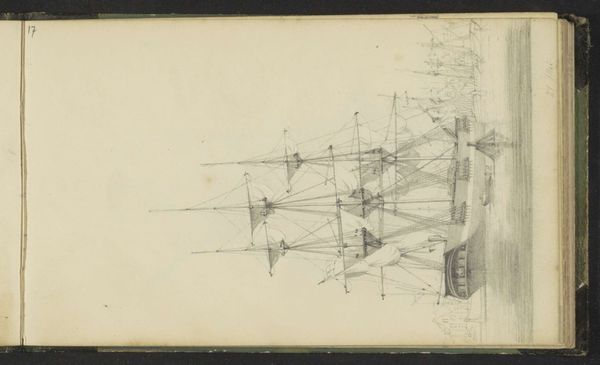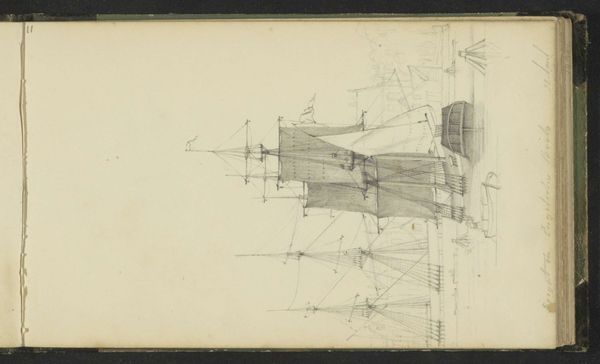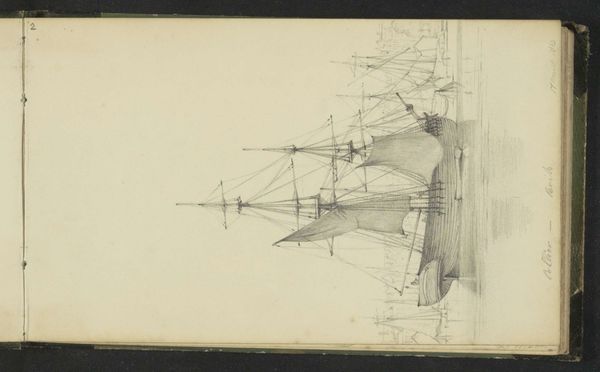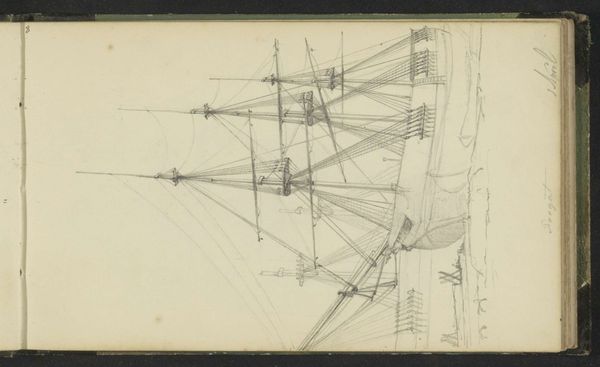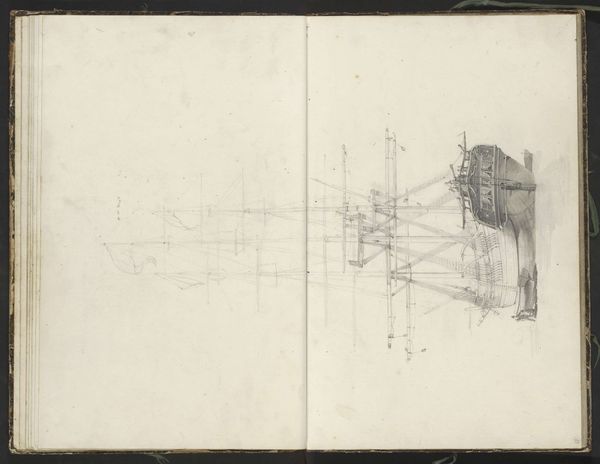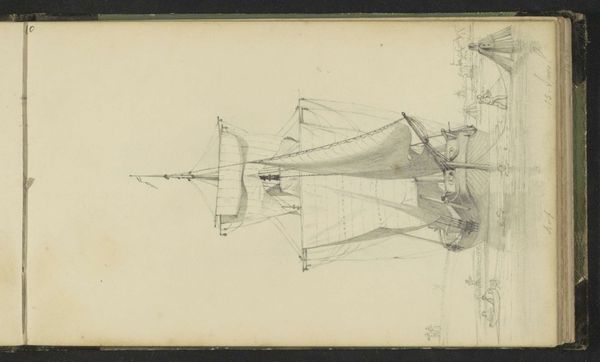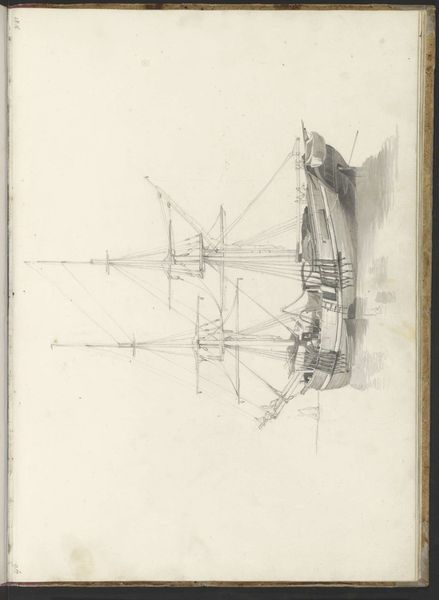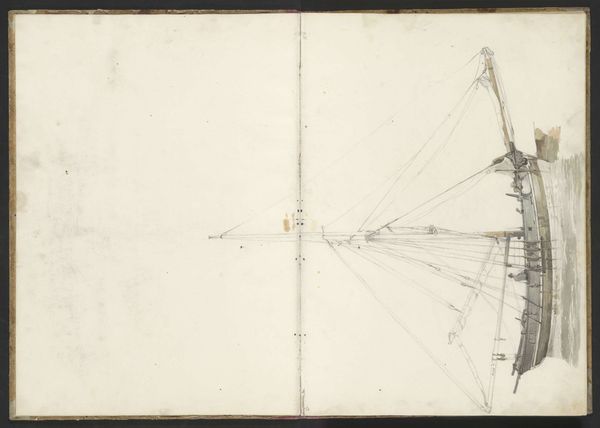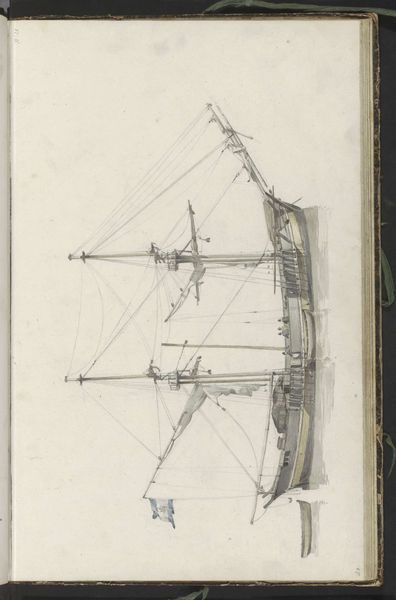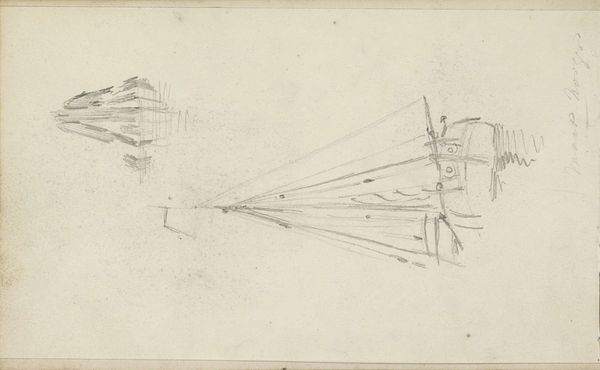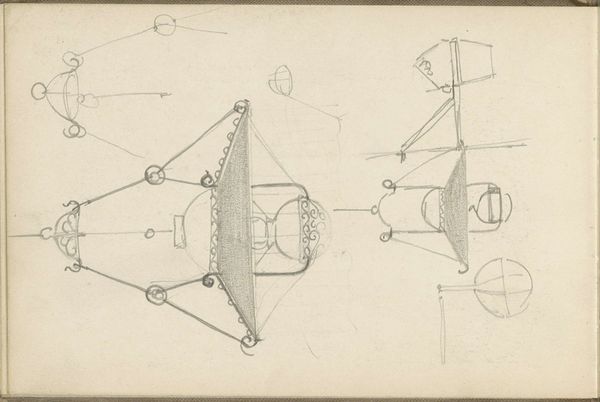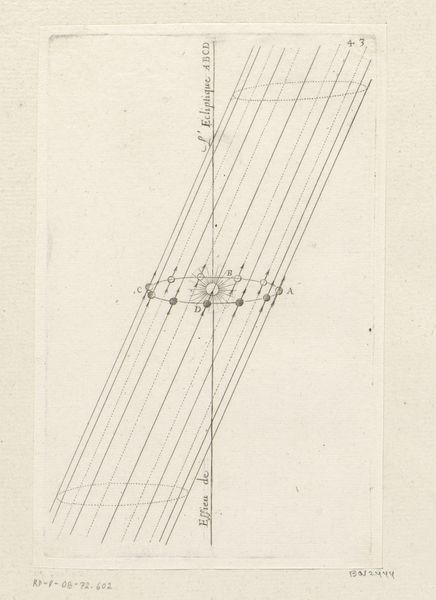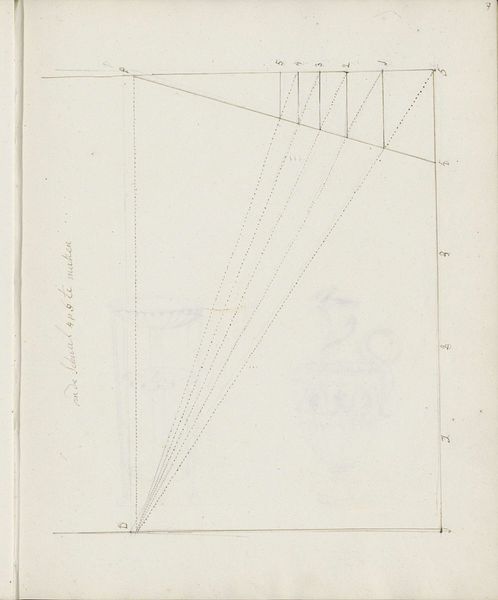
drawing, paper, pencil
#
drawing
#
amateur sketch
#
light pencil work
#
quirky sketch
#
sketch book
#
incomplete sketchy
#
landscape
#
paper
#
form
#
personal sketchbook
#
geometric
#
pen-ink sketch
#
pencil
#
line
#
sketchbook drawing
#
sketchbook art
#
initial sketch
Copyright: Rijks Museum: Open Domain
Curator: Looking at "Tweemaster," a pencil drawing from around 1843-1844 by Hendrik Abraham Klinkhamer, it's striking how much detail he captures with such light, almost ephemeral lines. Editor: It certainly evokes a feeling of maritime expansion during a period of global transformation, but those tentative pencil lines also suggest a possible naivete regarding that same global project. The sketch is incomplete. Does that denote hesitation, or… Curator: The beauty here really lies in the line work itself. Look at the way the artist uses different densities of pencil strokes to create volume in the sails, almost like he’s sculpting with light and shadow. There is a purity of form here that is admirable. Editor: I see that—though it's hard not to see those "pure forms" as instruments of power. Ships weren't just ships; they were vehicles of trade, colonization, exploitation. Where were these ships sailing to, and at what cost? Curator: But to reduce the work to its political baggage alone is reductive! The rendering of space, the suggestion of movement in the rigging…it’s a masterful study in perspective, irrespective of subject matter. Editor: But is anything truly irrespective of subject matter? Perhaps Klinkhamer was acutely aware of the social weight carried by these ships, or perhaps he was totally oblivious, happily sketching away. Either way, his personal positioning—or lack thereof—within these historical currents impacts my reading of it today. It’s impossible not to engage with these broader cultural concerns when experiencing a work tied to maritime endeavors. Curator: A fair point, but focusing too heavily on those external factors risks overshadowing the skillful and deliberate composition itself. Editor: Maybe it amplifies it. The piece becomes more than a study; it’s a silent participant in conversations about trade and empire and legacies of power. Curator: I see what you mean; still, I'm inclined to admire Klinkhamer's adept handling of light and form. Editor: I can certainly agree with the beauty of the medium, its lightness belies its impact on how we read into history, a history not so gentle in reality.
Comments
No comments
Be the first to comment and join the conversation on the ultimate creative platform.
